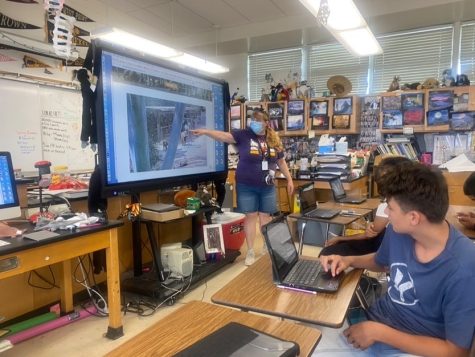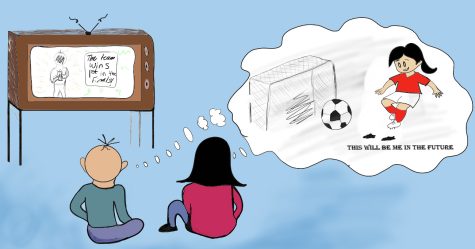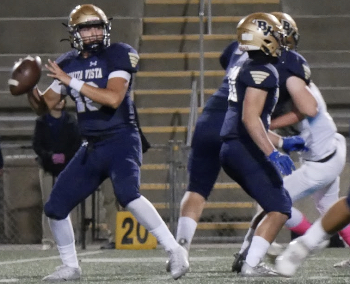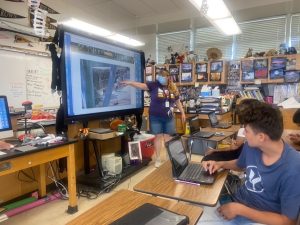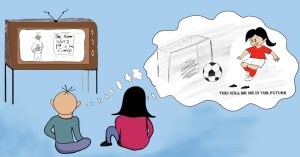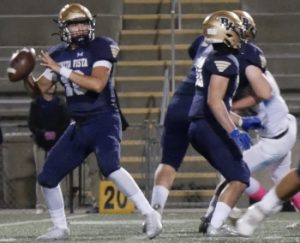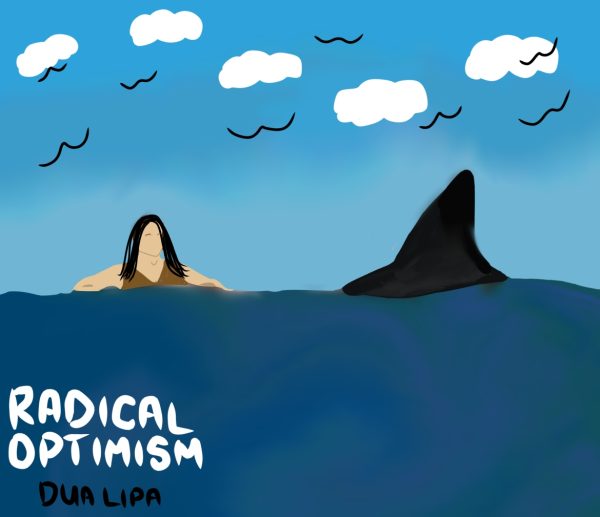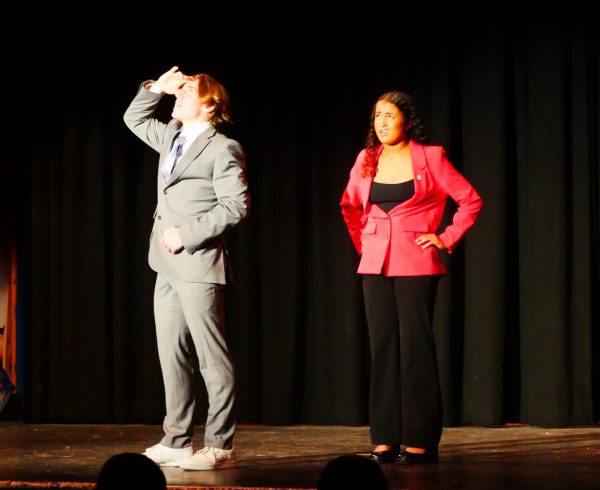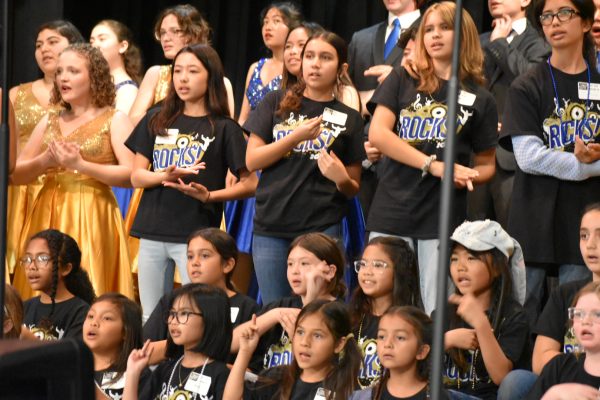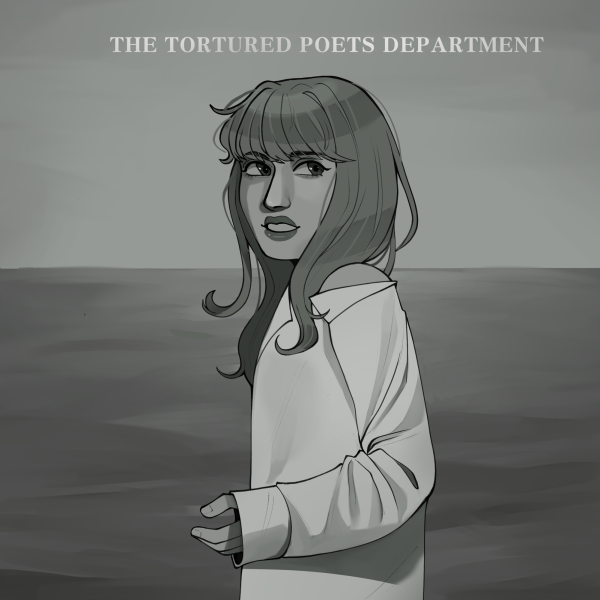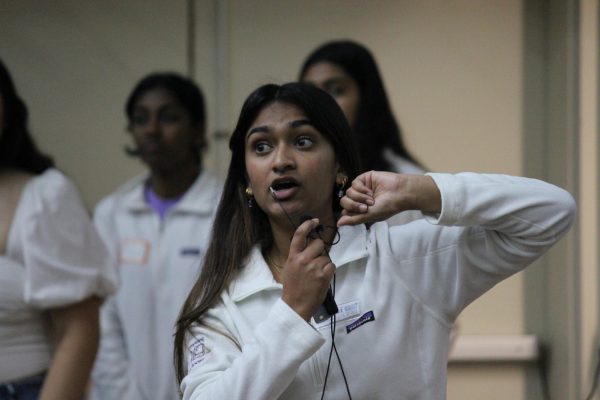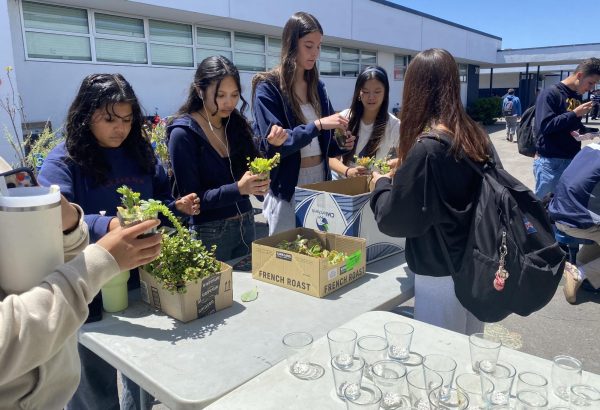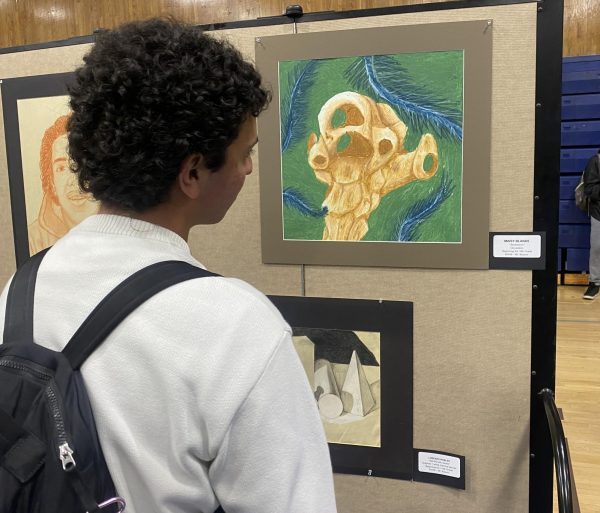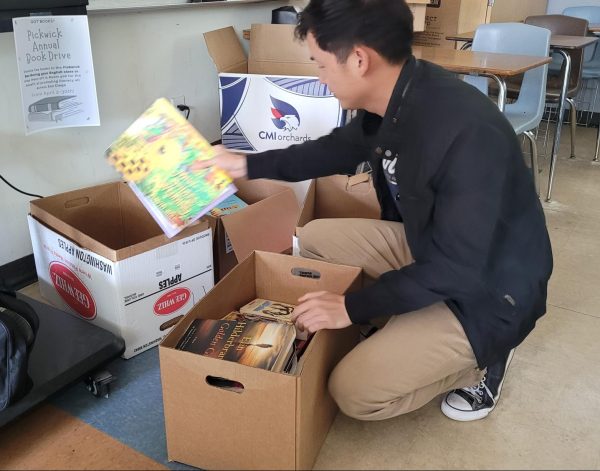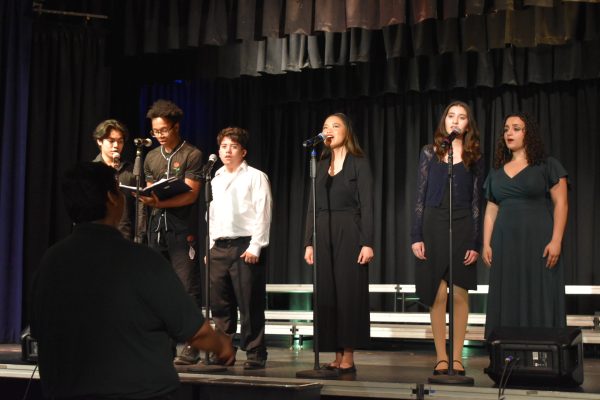Filipino-Americans stand on the shoulders of their giants
The 20th Annual Magkaisa Conference acknowledges their “giants”
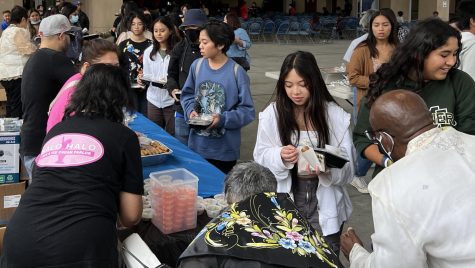
The Philippine National Anthem, “Lupang Hinirang” can be heard ringing throughout the halls of Otay Ranch High School (ORHS) Pavillion. People sing along as they rise for their culture and nationality. The 20th Annual Magkaisa Conference’s theme of “Standing on the Shoulders of our Giants”, recognizes the sacrifice that past generations have given up in order for Filipino-Americans to be where they are today.
Magkaisa roughly translates to “united” or “to be together.” According to ORHS student counselor and conference coordinator Dinnah Donato-Palmore, the theme of “Standing on the Shoulders of our Giants” is extremely important in efforts to bridge the gap between Filipino youth and their families.
“I think it’s important for students to know their history, to know their culture, to know their background, because you have to be a bamboo; rooted, having deep roots in your identity as a Filipino and being able to go and be able to sway and be sturdy in being Filipino-American,” Donato-Palmore said.
The idea of a Filipino Conference rooted from Donato-Palmore. Being Filipino herself and living in the United States since she was seven, Palmore learned the importance of bridging herself to her culture. She states that her experience at the University of California, Los Angeles included Filipino culture performances every night.
“Going into the field of education, hearing parents’ concerns about how their kids are doing, parents feeling like there’s no visible support for them because there were very few visible Filipino educators. The [Filipino community] needed support,” Donato-Palmore said.
At the conference, there were two workshop sessions provided—based on post-secondary education planning as well as cultural and familial orientation. Co-presidents of Bonita Vista High (BVH)’s Samahan club and seniors Jenna Broas and Audrey Fernandez attended the conference to represent BVH.
“Jenna and I thought it would be a great opportunity to explore our culture and become more involved in Filipino events because since we lost out on COVID-19 year, we weren’t really connected at all with each other or especially in our culture because we were in isolation. So, we thought this would be a good opportunity to dive into that,” Fernandez said.
This year, Donato-Palmore incorporated the idea of student-led workshops. The only adult support in these workshops were in case any challenges arose for students. At the end of the conference, she was proud to have had students take the initiative and to lead the informative workshops.
“In the past, it was adults who came in and did the workshops. For me, that was a decision that I made because who else can better talk about what you guys are going through, but you [students themselves],” Donato-Palmore said.
OHS Bayanihan club vice presidents and seniors Kayne Maniti and Pangat Sayow president Elena Aragon led the “Family Communications: Breaking the Cycle” workshop. Their goal was to create a safe space for the audience to learn how to better communicate their feelings with their family members.
“I think it’s very important. I wish I could communicate better with my mom. [I’m] not the best communicator in general. I feel like it’s important so I can share my feelings, which I kind of struggle with,” Maniti said.
For Maniti, it was an “eye-opening experience,” where he learned how to publicly express his thoughts and feelings about his Filipino culture. While preparing for the workshop, Maniti felt unnerved at the thought of public speaking, but felt supported by Aragon.
“You learn a lot [from the workshops]. It could be career or how we were very family oriented, close, very emotional. You learn a lot and you also connect with your Filipino community, if you are Filipino. Or if you do want to learn about the Filipino community, definitely come in,” Maniti said.
BVH counselor Reynila Calderon-Magbuhat attended the conference as another workshop presenter. Her “Know History, Know Self—An overview of Filipino-American History from 1587 to Present Day” workshop covered the four waves of Filipino immigration and the contributions made by Filipino-Americans.
“We’re not just a footnote in the history books. I feel we should not be merely a footnote by being marginalized on the pages. We’ve had a greater role than most people think. We’ve had a historical presence longer than people might even know a lot of people don’t know; we’ve been here for centuries,” Calderon-Magbuhat said.
Calderon-Magbuhat has shown her support for the conference as a consistent workshop presenter in previous years. She appreciates the community that comes with being a presenter at the Magkaisa Conference.
“We all support each other,” Calderon-Magbuhant said. “We’re all here to help each other and bottom line, here to help our students and parents navigate the system.”
After the workshops, lunch—sponsored by Halo Halo Cafe—consisted of traditional Filipino foods, such as lumpia, pancit, adobe and rice. Alongside providing lunch, OHS Filipino teacher and coordinator Rizalyn Cruz organized various entertainment. Entertainment ranged from traditional Filipino bamboo dance “Tinikling” by Pangat Sayow to a fashion show of traditional Filipino clothes.
As a way to end the entertainment segment and segue into the closing statement, students and administration led a Zumba dance to Inigo Pascul’s “Dahil Sa’Yo”. For the BVH students who attended the conference, Fernandez wants future generations to appreciate and understand their Filipino culture.
“I know that culture was lost within my parents when they moved here. My mom was told only to speak English and not Tagalog, so I really wanted to connect more with what my grandparents had been through as they’re the reason I’m here today,” Broas said.
Furthermore, Broas explains how her leadership position in BVH’s Samahan has led to opportunities to learn more about her culture, such as the conference.
“I’m a second generation [Filipino] and I don’t feel as connected to my culture as I should be. That’s why becoming a Samahan President, I’ve really been researching Filipino culture so I can teach myself as well as others,” Broas said.
For next year’s conference, Donato-Palmore and the rest of the conference board are already coming up with a theme. After this year’s, she expressed pride for the students and all the work that contributors added to the conference.
“This, me, is not the whole conference. It’s everyone who put the time in, from ideas to reaching out to guest speakers, coming in the day of and setting things up. They all played a part in making sure that this was a successful conference for the students. It’s really just love for the students that they do this for because we don’t get paid for it,” Donato-Palmore said.
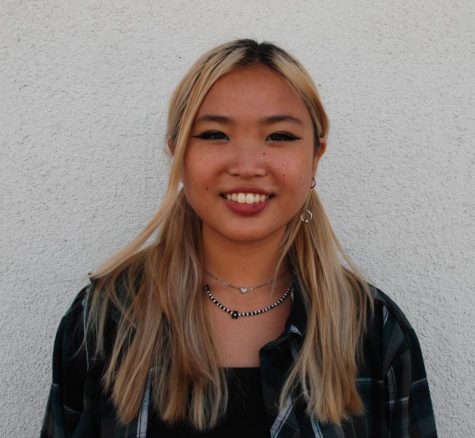
This year, I am co-Editor-in-Chief for 2022-2023. I’m a senior and a second-year Crusader staff member. Last year, I enjoyed my time serving as...
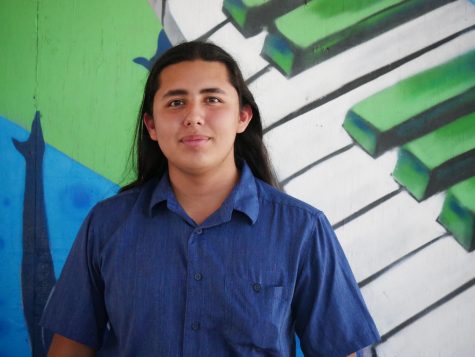
I am a junior at Bonita Vista High and this is my first year on staff for the Crusader. This year I am a photographer. I became a member of the Crusader...

